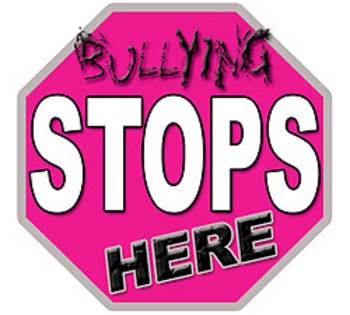
Social Emotional Wellbeing
Healthy social, emotional and behavioral well-being is defined as a child's developing capacity to:
Form close, secure, meaningful relationships
Experience, regulate and express emotions
Explore the environment and learn new skills
For more information, visit AACPS Social and Emotional Supports – Crisis Resources.
Bullying, Harassment & Intimidation
What is bullying, what can you do about it, and how can you stop it? Detailed are MSDE and AACPS policies, as well as how to report alleged bullying, harassment, or intimidation.
Bullying, harassment & intimidation: What is it? What to do about it? How to stop it
For more information on AACPS's Anti-bullying Policy and to access the Bullying Report form, visit Anti Bullying Initiative.

Wellness, Mindfulness & Resilience
Mindful Kids: Adult Supporter Edition
The practice of mindfulness has a wide variety of benefits. iscusses the value of mindfulness and leads viewers on a mindfulness exercise of their own. Resources are shared in the video and below the video on this page. This video is a contribution from the Fall 2021 Family Involvement Conference.
Resources on Wellness, mindfulness and resilience:
Free Videos:
Register for free, age-appropriate daily mindfulness videos you can do together with your kids/teens: Emerging Lotus Mindful Kids
Reading suggestions for kids:
What do You Do With a Problem? By Kobi Yamada
Here and Now by Julia Denos
A World of Mindfulness by Erin Alladin
Bee Heartful by Fran Sileo
Mindfulness Workbook for Kids: 60+ Activities to Focus, Stay Calm, and Make Good Choices by Hannah Sherman, LCSW
Reading suggestions for teens:
Brainstorm by Daniel Siegel, MD
Mindfulness for Teens in 10 Minutes a Day: Exercises to Feel Calm, Stay Focused & Be Your Best Self by Jennie Marie Battistin MA LMFT
Mindfulness Workbook for Teens: Exercises and Tools to Handle Stress, Find Focus, and Thrive by Linette Bixby
View more resources below on wellness and resilience.
The ABCs of Wellness
It's important to be mindful of your own wellbeing and how you can share an attitude of self-care with your student. Learn ways to be aware, to breathe, and to connect for a healthier state of wellbeing.
Helpful links:
Resilience & Wellbeing
Resilience is a measure of how well we recover and move forward after a setback or challenge. Learn what resilience is, how we can build resiliency skills in ourselves, and foster resilience in others.
Helpful links:
Boosting Wellbeing During Difficult Times
Children (and their caregivers!) can navigate difficult times and don't need to let the stress alter them for the worse. Understanding the possibility of post-traumatic growth makes it much more likely that our children will become more resilient. This session provides suggestions and information to help parents model healthy behaviors in their daily lives. This video is a contribution from the Fall 2021 Family Involvement Conference.
Coping Skills for Kids/Teens
Parents and guardians often see their child(ren) struggling with the stresses of school and home and the many challenges of growing up. Sharing and teaching coping strategies can provide children and adolescents with the tools they need to work through stress. In addition to the video, links to some very helpful tools are included below.
Resources for Coping with Anxiety
Easing Anxiety
Day to day anxieties can seriously affect a student's happiness and wellbeing. Here are some suggestions for helping them learn to lower their anxiety. Should your student suffer from extreme anxiety, please consult his/her pediatrician or a mental health expert to assess their needs.
Additional Supports/Resources
AA County Crisis Response: 410-768-5522
Crisis Text Line: Text HOME to 741741
MD Youth Hotline: 1-800-422-0009
Self-care and Why It's Important
Self-care involves a deliberate, intentional, and active mindset to promote health and wellness, prevent disease, and encourage positive coping. Start today with a few ways to get started on a fresh and feasible approach to self-care. This video is a contribution from the Fall 2021 Family Involvement Conference.
Resources for Self-Care
